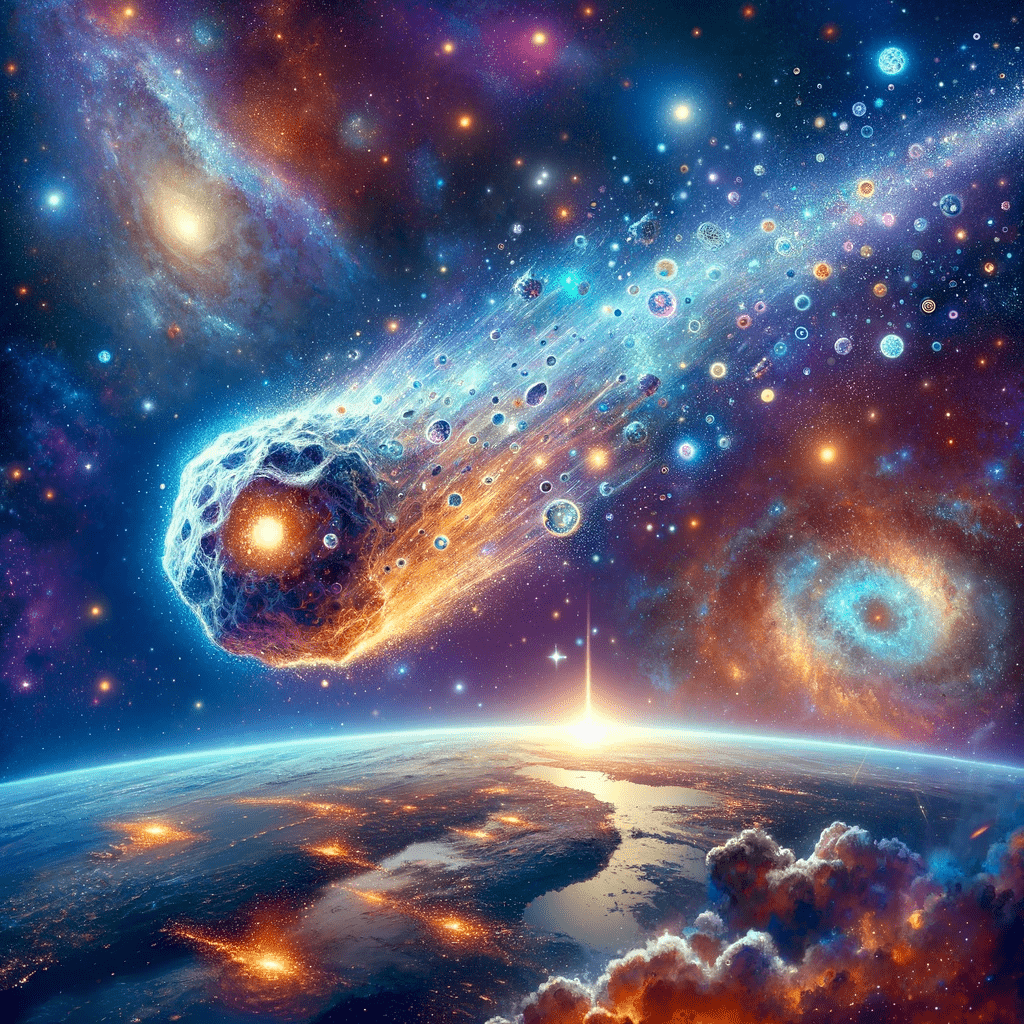The Exogenesis Theory

The Exogenesis Theory is a scientific theory that suggests that life on Earth was not created on our planet, but rather came from outside our solar system, possibly from another planet or galaxy. This theory proposes that life was brought to Earth via comets, asteroids, or other forms of interstellar debris. The Exogenesis Theory has been a subject of much debate and study within the scientific community, as it challenges traditional ideas about the origins of life on our planet.
The concept of the Exogenesis Theory has been around for centuries, with the ancient Greek philosopher Anaxagoras suggesting that life may have originated from seeds brought to Earth from other worlds. However, it was not until the 20th century that the theory began to gain more serious consideration from the scientific community.
One of the key arguments for the Exogenesis Theory is the fact that life on Earth began relatively soon after the planet formed, at a time when the conditions on our planet would not have been conducive to the development of life. It is believed that Earth’s early atmosphere was mostly composed of nitrogen, carbon dioxide, and water vapor, and lacked oxygen and other gases that are necessary for life as we know it. Therefore, some scientists argue that it is more likely that life was brought to our planet from elsewhere.
Three unique facts that support the Exogenesis Theory are: (1) In 2015, NASA scientists discovered organic compounds in the dust emitted by the comet 67P/Churyumov-Gerasimenko, providing evidence that comets contain the building blocks of life. (2) In 2018, researchers found evidence of extraterrestrial amino acids in a meteorite that had crashed in Australia in 1969. (3) In 2020, a study found that microorganisms can survive the harsh conditions of space, suggesting that it is possible for life to travel between planets and even between star systems. These facts were reported by NASA, Scientific American, and Astronomy magazine.
Experts in the field have expressed a range of opinions about the Exogenesis Theory. Some scientists argue that the theory is plausible and worthy of further study, while others are more skeptical. For example, astrophysicist Neil deGrasse Tyson has stated that the idea of life originating from outside Earth is “a plausible hypothesis,” while biologist Richard Dawkins has expressed skepticism about the theory, stating that it is “not a necessary or sufficient explanation for the origin of life on Earth.”
Several books have been written about the Exogenesis Theory, including “The Eerie Silence” by Paul Davies and “The Cosma Hypothesis” by John Hands. Davies’ book explores the possibility of life originating from outside Earth, while Hands’ book suggests that life may have originated from a previous universe. Both books present the Exogenesis Theory as a serious and plausible idea.


